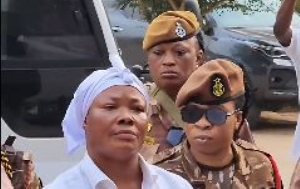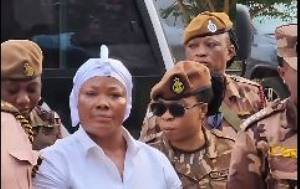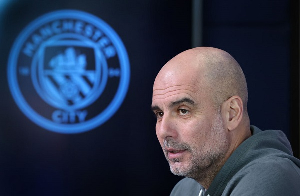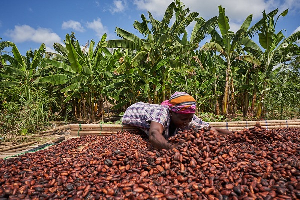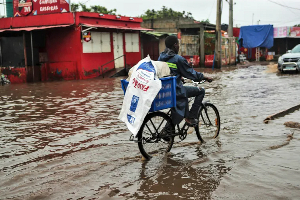Raymond Ablorh
The knife, in the hands of a physician is a source of relief to the perishing soul that needs surgery; in the hands of the armed robber, it’s a pain booster to the vulnerable victim. So, the media that the Rwandans could employ for problem-preventing and solving education, they used as killing catalysts in ethnicity motivated genocide.
Out of a population of 7.3 million people – 84% of whom were Hutus, 15% Tutis and 1% Twa – the official figures published by the Rwandan government estimated the number of victims of the genocide to be 1,174, 000 in 100 days (10,000 murdered everyday, 400 every hour, 7 every minute).
Another source put the death toll at 800,000, 20% of whom were Hutus. It’s estimated that 300,000 Tutis survived the genocide. Thousands of widows, many of whom were subjected to rape, are now HIV- positive. There were about 400,000 orphans and nearly 85,000 of them forced to be become heads of families.
Certainly, the first lesson Rwandans practically learned is that the world cannot be trusted to save them from their suffering, as the former UN Secretary General, Kofi Annan, candidly admitted of the sad event later in the year 2000, “the international community failed Rwanda and that must leave us always with a sense of bitter regret.”
With this sense of bitter regret the entire world moved to assist in the recovery of poor Rwanda; but, as Ellis Cose wrote in ‘Lessons of Rwanda’ published on the Newsweek website on April 12, 2008, “the important thing is not how quickly the country is healing but how easily it descended into madness.”
It is in this swiftness to such heights of madness that growing democracies like Ghana could locate the lessons soaked in the thick blood of the people of Rwanda. One of the greatest lessons here to infant democracies is that they ought to appreciate with insight the responsibilities democratic freedoms; especially, media freedom, come with before they set their countries ablaze.
The head of the media capacity building project in Rwanda – ‘Rwanda Initiative’, Prof. Allan Johnson bluntly put it his way, “…: local media fueled the killings, while the international media either ignored or seriously misconstrued what was happening.” The local print media are believed to have started hate speeches against Tutis, which were further broadcast by radio stations.
In a country where nearly fifty percent of the population could neither read nor write, radio was a vital form of public communication. Radio appears also to have been widely trusted in Rwanda, with several surveys in the 1980s showing that the vast majority of the population believed that ‘radio tells the truth’. Television was expensive, and given the hilly terrain it was almost impossible at that time to receive a clear terrestrial signal.
By contrast radio could reach nearly 90% of the country. During the 1980s, the production of radios was subsidised by foreign donors and the government. Both sold sets at a reduced price and gave them away to party administrators, as well as more widely during elections. Some of these radios could only receive FM.
As captured in Jolyon Mitchell's article,'Remembering the Rwandan Genocide: Reconsidering the Role of Local and Global Media', “in 1970 there was about one radio to every 120 people, but by 1990 this had increased to one radio to every 13 people. With this greater availability, increasingly radio became a focal point for entertainment, information and discussion in Rwanda.” With the founding of Radio-tèlèvision Libre des Mille Collines (RTLM) in July 1993, Rwanda’s airwaves were filled with a new sound.
It soon became Rwanda’s most popular radio station, and in the months preceding the genocide, many residents tuned to RTLM in their homes and ‘in offices, cafes, bars and other public gathering places, even in taxis’. In the midst of what some saw as a civil war and others an invasion, RTLM contributed to the development of an increasingly tense public sphere, which provided a forum for extremist speakers to articulate old grievances and new anxieties.
Given this context it is not surprising that subsequent journalistic accounts of the Rwandan genocide pointed to locally produced radio broadcasts as a significant catalyst for the explosion of violence.
Other media particularly the Hutu extremist newspaper Kangura (‘Wake him up’) were also blamed, but it was the radio broadcasts of RTLM, and to a lesser extent Radio Rwanda that were deemed to be particularly culpable. One Canadian journalist described how ‘Hutus could be seen listening attentively to every broadcast… They held their cheap radios in one hand and machetes in the other, ready to start killing once the order had been given’.
Other journalists in the West also highlighted the part played by RTLM in the genocide. The Washington Post, for example, as early as April 7, 1994, quoted a RTLM broadcast that warned Tutsi in Rwanda, ‘You cockroaches must know you are made of flesh! We won’t let you kill! We will kill you!’’
Associated Press also on April 25, 1994, quoted a UN spokesman in Kigali claiming that ‘Radio RTLM is calling on militias to step up the killing of civilians.’
The belief that radio was partly culpable for the Rwandan tragedy has been reinforced in other contexts. For example, a short French film Itsembatsemba: Rwanda One Genocide Later (Alexis Cordesse and Eyal Sivan, 1996) depicts how RTLM began to broadcast with the assistance of the government and then played a central part in ‘the unleashing and the coordination’ of the genocide.
Recent feature films about the genocide, such as Hotel Rwanda (2004) also highlight the role of the radio. Nevertheless, the actual role that RTLM played in the Rwandan genocide remains not only a contested phenomenon, but also a point of judicial inquiry.
Yes, during the 2008 General Elections in Ghana, many a resident stood frighteningly at a steep edge seeing the power of the media when a broadcast from Radio Gold got many supporters of the National Democratic Congress (NDC) surround the station to stop the police from allegedly effecting some arrest there. And, we all saw how simple broadcast got thousands of supporters besiege the Electoral Commission head office at Ridge, Accra.
Surely, some people imagined that but for Radio Gold’s effort, the New Patriotic Party (NPP) would have rigged the elections; but, nobody could imagine what would have happened if the visibly pro- NPP radio station, Oman FM, was very active those days and decided to inspire NPP supporters with an ‘ALL- DIE- BE- DIE’ message. This is just a food for thought.
When I listen to some stations today, I genuinely get sad and frightened about what could happened if we don’t learn from the blood soaked lessons from Rwanda now. We aren’t better human beings than the Rwandans and if what got them killing themselves happens to us we could do same. We have to take nothing for granted.
Unlike in Rwanda, there are so many ethnic groups in Ghana and it wouldn’t be easy getting one ethnic group fighting the other. But, we could fight along political party lines; and, looking at how we continue to tie political parties to ethnic groups, political enmity could resurrect old bad tribal feelings. The consequence is obvious.
Again, unlike Rwanda, Ghana has very broad and diverse media domain which continue to offer audience many varieties of contents. However, one doesn’t need to conduct an extensive audience research to know that party supporters even without a whip know where to get information favourable to their parties from. Hence, the most predictable place any such violence could start is the politicians-owned media and from those journalists who are more of politicians than journalists.
This is why the National Media Commission (NMC), Ghana Journalists Association (GJA) and all well meaning organizations and individuals ought to deem it expedient and highly imperative to check the media before they kill us all. It’s no insult to call the NMC a toothless dog; and the GJA is also being more protective of the journalist with a solidarity hug and paying very less attention on ensuring that professional standards are upheld.
The latter’s controversial definition of who a journalist is and requirements for membership could be looked at again. According to them, journalists, after their four-year degree programme or two-year diploma studies must work for two years before they could be members.
Such fresh journalists with purely academic appreciation of media ethics could be dangerous on the media landscape; so, I suggest the GJA rather should at least create some category for the fresh out of school journalist in a membership structure where they could benefit from the Association’s professional training to equip them with some kind of relevant ethical decision making and taking techniques to enhance their work.
When I was the SRC Vice president of the Ghana Institute of Journalism, for instance, I initiated the ‘Journalism Student Debate’ dubbed ‘Controversies in Media Ethics’ where student journalists practically could debate latest ethical matters in the Ghanaian media so that by the time they entered the field they could without much difficulty appreciate some of the major ethical decisions they would take daily in and out of the newsroom.
I expected the institute or the SRC to institutionalize that with the very good reasons it came with. But, perhaps, because it’s more difficult to convince the students to patronize such an event than do the MISS COMMUNICATOR or the beach party on the SRC’s calendar, present students don’t even know that something like that had ever been done in the school before.
I suggest that all journalism schools in Ghana should find a way of encouraging such intellectual and professional engagements both internally; and externally, among the schools as exercises purposefully directed at keeping the beneficiaries abreast with practical ethical issues on the field even before they get there.
But, again, the ordinary reporter has very limited power when it comes to newsroom decisions, and this is why the NMC needs to be strengthened to deliver more effectively and efficiently its mandate.
Meanwhile, till the NMC acquires what it takes to ‘control’ our media; maybe, the audience could do the magic. Please, don’t go and beat any journalist in a media house because that would obviously get you into trouble. Moreover, never fight anybody who buys ink in barrels. For, as it is said, the pen is mightier than the sword. And, I would add that the mightiest is the microphone.
The way to do it is simple, JUST CHANGE THE DIAL from that station; or, DON’T BUY THE PAPER which incites people and engages in anti-development journalism. Their listenership and circulations would obviously drop speedily over a short time and there never could be an effective audience control than that.
Go on and educate those around you to avoid nation wrecking and unconstructive media outputs and if we continue to do that the only people who would be left listening to them are themselves and perhaps the serial callers. And, which advertiser would sponsor a programme which has just few serial callers as its audience? Writer’s email: presidentablorh@yahoo.com
When Democracy Is Reduced To Elections Raymond Ablorh
As Hoffman pointed out, democracy is the most discussed and contested notion of political theory. Nwabueze stressed that “no word is more susceptible to a variety of tendentious interpretations than democracy.”
But, how ever you define; describe; explain; and, interpret democracy; it’s more of a means to an end than an end in itself.
It is a mixture of liberties, choices and responsibilities towards the actualization of the dreams and aspirations of a people with diverse and common interests. The end to which democracy is considered a means, thus, is the meaningful development of those who practise it.
And, elections are platforms in democracies which offer the opportunity for citizens to choose freely from among varied programmes or policies presented by several parties or candidates. Elections are governed by law, both international (human rights) and domestic law.
In international law, the right to vote is a political right entrenched in a number of legal instruments. For example, the Universal Declaration of Human Rights (UDHR) provides that “everyone has the right to take part in the government of his country, directly or through freely chosen representatives.”
This right is supported by the right to freedom of peaceful assembly and association. Although the UDHR is a UN General Assembly resolution and not binding per se, it can be argued that its acceptance by the overwhelming majority of UN member states has made it binding as part of customary international law.
The International Covenant on Civil and Political Rights (ICCPR), which is a treaty binding on states parties, also entitles every citizen to take part in the conduct of public affairs of his or her country, directly or through freely chosen representatives, to vote and to be elected at genuine periodic elections which shall be by universal and equal suffrage and held by secret ballot, guaranteeing the free expression of the will of the electors.
The right to vote and to be elected thus is entrenched in almost all modern Constitutions and electoral laws enacted to enforce them. On the domestic level, there is no single African country where the Constitution does not provide for the right of ‘every’ citizen to vote during regular, free and fair elections even though electoral politics has taught otherwise.
Elections have become a political game, but a game that has to be played according to some agreed rules and principles entrenched in the Constitution and electoral laws.
Certainly, democracy and election aren’t synonyms. Mathematically speaking, election is a subset of democracy; or, democracy is a universal set of election and other democratic activities. The choices that are made during elections are therefore supposed to be executed through the effective participation of all citizens towards the ultimate purpose for which they were made. The ultimate purpose is development.
Unfortunately, as Claude Ake critically observed, “in the hurry to globalise democracy in the aftermath of the ending of the Cold War, democracy was reduced to the crude simplicity of multiparty elections to the benefit of some of the world’s most notorious autocrats who were able to parade democratic credentials without reforming their repressive regimes.”
Africa is now obviously suffering from the careless propagation of this jaundiced democracy. One needn’t be a critical observer to see how African countries, including Ghana- the much praised for her democratic credentials, have reduced the whole essence of democracy to mere elections.
In Egypt President Mubarak had been always re-elected by majority votes for successive terms on four occasions: in 1987, 1993, 1999 and later in 2005. In Tunisia, President Ben Ali had been re-elected in 2009, for a fifth term with 89% of the vote under undemocratic conditions of gross human rights violations.
Ivory Coast is another example of the danger of a country that has focused its major efforts on conducting an election than building democracy. In Ivory Coast in particular, the United Nations devoted a lot of resources to organizing an election in conditions that everybody knew could not guarantee a free and fair election. And, we all saw what happened.
Of course, in Africa’s desert of democracy, Ghana is genuinely seen as the oasis of hope mainly because she has been able to organize elections for the past two decades without very heavy bloodshed. But, could Ghanaians say that our democracy has made our education system; judicial system; health system; and all other systems better?
In the abundance of water, Ghanaians are thirsty. The rainy season comes with preventable floods which wash away many families with their properties; but, just open the taps in many parts of the country and if you’re lucky enough the water company's whistle in the pipelines will funnily, if not annoyingly blow you some sounds and air. Not a single atom of water makes appearance from taps in many parts of Ghana even on the World Water Day.
Yes, we enjoy freedom of speech. But, for what are we using it? Perhaps, to trade rumors; and, insult one another instead of trading ideas in the supermarket of thoughts which democracy is supposed to provide towards the solution search to our seemingly insurmountable problems.
Just after one successful election, harsh latent campaigns for the next seriously begins with accusations and counter accusations; name calling; rumour mongering; unconstructive propaganda laden communication, etc, instead of coming together to ensure the efficient execution of the policy choices we have made towards the actualization of the dreams and aspirations of our people.
All what opponents of government needs to do is remind government of the next election date to stop them from taking and implementing drastic decisions even when such decisions are in the best interest of the nation. In essence, for fear of offending the electorates our governments are unable to dress and heal the rotten sores of the nation.
It’s no secret that just before the 2004 and 2008 general elections in Ghana, street hawkers who the Accra Metropolitan Authority had spent so much resource to clear off the streets for sanitary and other good reasons were allowed to come back to the streets because of obvious fears that they would vote against the party in government.
Our governments are unable to complete projects commenced by their predecessors, not because the projects are not useful, but, partly because they have to embark on new projects otherwise their opponents would campaign against them for having done nothing new. The consequence is that they continue to waste the nation’s resources on partly completed projects thereby making the rich but poor country an unenviable owner of “monuments of waste” to borrow Kofi Akordor’s expression.
According to the results of the Legatum Prosperity Index (2010), which is a global Index of wealth and well-being, Ghana ranks 90 out of the 110 countries assessed; and, 4th in sub-Saharan Africa; while the UNDP Human Development Index (2010) positions Ghana at 130 out of the 169 countries assessed and 8th in Sub-Sahara Africa; and the World Economic Forum Competitive Index places Ghana at 114 out of the 139 countries assessed and 12th in Africa. Our economic /social prosperity story is thus depressing.
The Legatum Index mentions education, health, entrepreneurship and opportunity, our economy and finally the level of our social capital as the biggest drawbacks to the prosperity of Ghana.
As of 2010, unemployment rate was 28.4%, the fifth highest rate in the Legatum Index. A research exercise in 2009 also suggests that Ghana is among the bottom 15 countries in terms of affordability of adequate food and shelter. Only one-third of Ghanaians are satisfied with standards of life and less than a fifth believe that there exist good job opportunities. The country is hugely reliant on the export of unprocessed materials and high-tech exports constitute on average a mere 1.4% of total manufactured goods. High fiscal deficits and build-up of significant debt constantly threatens macroeconomic stability.
Furthermore, only 74% of eligible children are actually enrolled in primary school. The ratio drops to 54% for secondary school. Even bleaker is the fact that gross tertiary enrollment is 6%. The result is a marginally educated workforce; the average worker has only one year of secondary education and just 0.1 years of tertiary education.
In the Ghana Living Standards Survey (2008 edition), the Ghana Statistical Service reported that about 31% of all adults have never been to school, less than one-fifth (17.1%) attended school but did not obtain any qualifications; while a small percentage of 13.6 possess secondary or higher qualification. How do we expect the average worker to contribute to GDP growth when he/she just doesn’t have the requisite skills?
Ghana’s rate of undernourishment is above the global average of 13.5%. Annual health spending per capital is just $122; 92nd lowest in the Legatum Index.
Yes, when democracy is reduced to elections, it produces unnecessary political rivalry, animosity, name calling, dirty propaganda, corruption and the violent conflicts we see in Africa today; and, not the meaningful development true democracy promises.
Certainly, I can’t embrace Mitchell and Booth “anti-electoralist fallacy” thesis, which assumes that elections never matter for democratization; because, in our modern era, you can have elections without democracy, but you cannot have democracy without elections.
However, I vehemently agree to Georges Nzongola-Ntalaja’s argument that, “ it would be too simplistic to identify democracy with the holding of elections since the question of democracy goes far beyond elections to the realisation of democratic principles of governance and the balance of social forces in the political community.”
Writer's email address: presidentablorh@yahoo.com
Opinions of Tuesday, 8 May 2012
Columnist: Ablorh, Raymond
The Day Ghana Nearly Got Burnt
Entertainment
